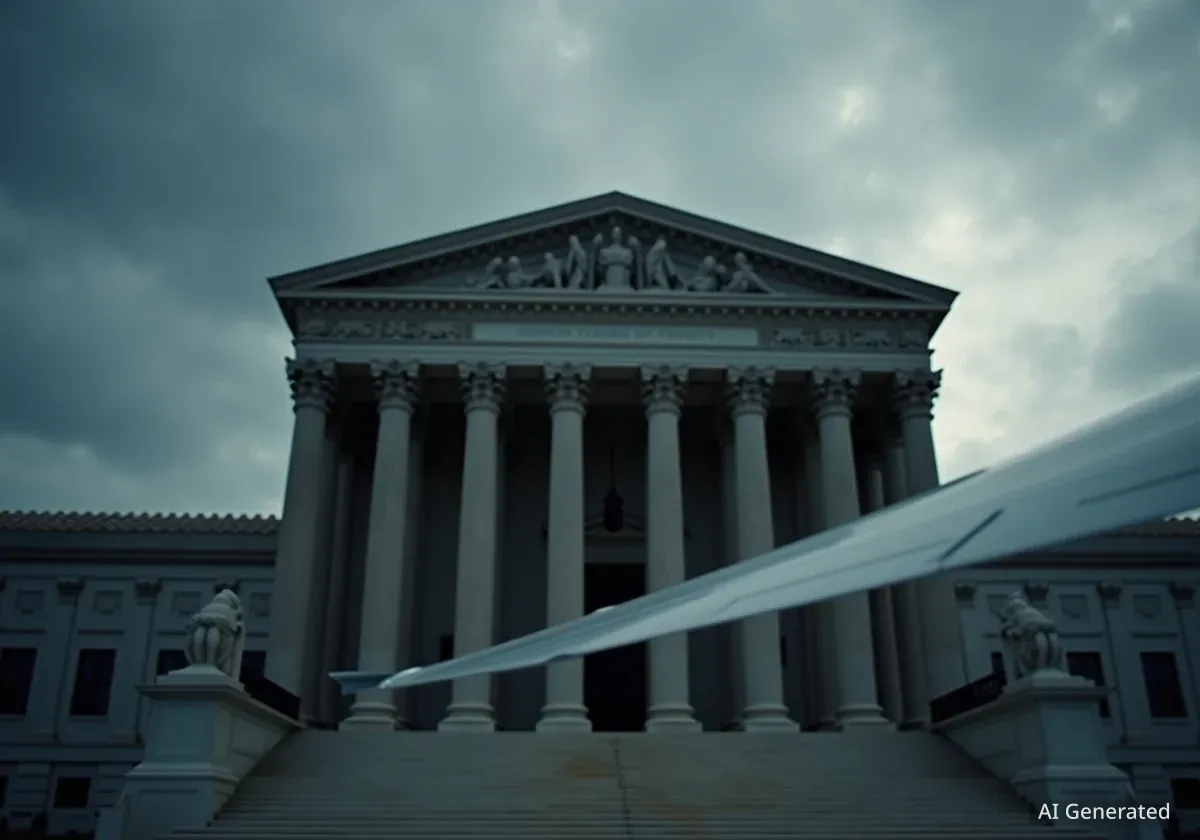Top executives from Allegiant Air and Frontier Airlines are scheduled to appear before a Senate Judiciary antitrust subcommittee today. The hearing will focus on competition within the airline industry, with a particular emphasis on the impact of Spirit Airlines' ongoing struggles and market consolidation.
This session is expected to cover how current market dynamics affect consumers, low-cost carriers, and the broader aviation sector. Congressional aides have indicated that a wide range of issues related to airline competition will be discussed.
Key Takeaways
- Allegiant Air and Frontier Airlines CEOs will testify before a Senate subcommittee.
- The hearing addresses airline industry competition, especially after Spirit Airlines' challenges.
- Discussions will include air traffic control issues and potential policy changes affecting airline revenue.
- Investors are watching for impacts on ancillary fees, gate access, and merger approvals.
Senate Hearing Focuses on Airline Market
Greg Anderson, Chief Executive of Allegiant Air, and Barry Biffle, CEO of Frontier Airlines, are the main witnesses. They will be joined by Sharon Pinkerton, a senior vice president from Airlines for America (A4A). A4A represents major carriers such as United Airlines, Delta Air Lines, American Airlines, and Southwest Airlines.
These industry leaders will answer questions about how competition influences customer experience, the operations of budget airlines, and the overall health of the air travel market. The testimony comes at a time when the airline industry faces scrutiny over pricing and service.
Fact: Air Traffic Control
Industry groups, including Airlines for America, have consistently stated that the nation's aging and understaffed air traffic control system contributes significantly to operational challenges and flight delays, particularly during peak travel seasons.
Competition and Customer Options
According to reports, Airlines for America plans to highlight several positive aspects of the current market. These include historically low airfares, a wide array of travel options for consumers, and improvements in customer service quality.
The organization attributes record-high demand for air travel to these factors. However, A4A also stressed that maintaining strong competition between legacy carriers and low-cost airlines is crucial for the industry's future.
"Robust competition has led to historically low fares, a wide availability of options and quality customer service which has resulted in record high demand," Airlines for America stated.
Frontier Airlines has also confirmed its participation, indicating that low-cost operators will likely echo similar points about market dynamics and the need for fair competition.
Operational Challenges and Regulatory Concerns
A significant part of the hearing will address the challenges faced by airlines. Many carriers and industry associations have pointed to the nation's outdated air traffic control system as a major cause of operational problems, especially during the busy summer travel period.
An understaffed system can lead to delays and cancellations, affecting both passenger convenience and airline efficiency. Modernizing air traffic control is seen as a key step toward improving capacity and reducing disruptions across the entire network.
Industry Context: Spirit Airlines
The ongoing situation with Spirit Airlines is a central topic. Its challenges have raised questions about competition in the low-cost sector. The airline's future market position and its impact on pricing and route availability will be closely examined during the hearing.
Investor Outlook and Policy Risks
Investors will be closely monitoring the hearing for potential policy changes that could affect airline profitability. A key area of concern is the possibility of new regulations on ancillary fees.
Ancillary fees, such as charges for baggage, seat selection, and other services, represent a significant revenue stream for ultra-low-cost carriers. Any curbs on these fees could put pressure on their business models and growth strategies.
- Ancillary Fees: Potential restrictions on these charges could impact revenue mixes for budget airlines.
- Gate Access: Changes in gate access at busy airports could reallocate capacity and affect pricing power.
- Mergers and Alliances: A reduced appetite for airline mergers and alliances by regulators could limit growth opportunities.
Furthermore, discussions on air traffic control modernization are important because improvements in this area could directly enhance airline capacity and operational reliability. This could lead to more flights and better on-time performance.
Impact on Legacy Carriers and Consumers
For larger, legacy airlines, a focus on pro-competition policies might lead to additional obligations. These could include requirements for greater transparency in pricing, guaranteed family seating, and increased flexibility for schedule changes.
Such measures aim to protect consumers and ensure a fair marketplace. Investors will need to track these potential reforms closely to understand how they might influence airline finances and their ability to generate profits.
Specific reforms like changes to slot allocation at airports and efforts to prevent further industry consolidation are also on the radar. These measures could reshape the competitive landscape and affect how airlines operate and expand.
Key Consumer Concerns
Passengers are seeking clarity on the future of Spirit Airlines and whether its current difficulties will negatively affect air travel options or prices. The hearing provides a platform for these concerns to be addressed.
Full-service network operators are also working to attract more passengers, often by promoting premium cabins and enhanced loyalty programs. The competitive nature of these loyalty programs, which some critics argue are becoming less competitive, could also be examined.
Additionally, safety questions related to air traffic control systems have arisen following an incident in Washington, D.C., earlier this year. This hearing offers an opportunity for officials to provide answers and address public concerns about air travel safety and infrastructure.
The session will offer a detailed look into the various factors influencing the airline industry, providing insights for both the public and financial markets.





